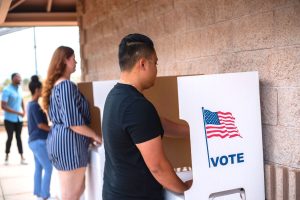California Remains in Minority of States With No THC Legal Limits for Drivers
Recreational marijuana has been legal for adults in California for the past 7 years – but driving under the influence of marijuana (or any mind-altering substance) has always been strictly prohibited. But despite all the legislative and regulatory developments with respect to marijuana law, the state has yet to establish any bright line rule on legal THC limits for drivers.
Of course, as our Los Angeles cannabis DUI lawyers can explain, a big part of the reason for that is because it’s none so simple to establish marijuana intoxication simply based on the levels of psychoactive THC in one’s body. Unlike alcohol, which cycles through the body very quickly, THC remains traceable for weeks after consumption. A 0.08 percent blood-alcohol level would likely indicate recent excess alcohol consumption. But the same isn’t true for THC. Person A might have higher levels of THC in their bloodstream than Person B, but still be less intoxicated. The level of THC in one’s system simply doesn’t tell the whole story, particularly if one is a regular cannabis consumer.
Despite this, 18 other states have imposed some sort of limit on the amount of THC drivers can have in their bloodstream before they’re considered “under the influence” of cannabis. (THC, of course, is short for tetrahydrocannabinol, the element contained in marijuana that creates the “high.”)
There are some safe driving advocates trying to change that. One of those is the family of a 25-year-old who died tragically in a California car accident in 2020 – a passenger in a truck driven by her boyfriend. He would later say he saw an animal, jerked the steering wheel, and crashed into another vehicle – totaling his truck and killing his girlfriend instantly. The woman’s father believes the boyfriend was stoned, and he’d even spoken to his daughter about not getting into the car with her boyfriend when he’d been consuming cannabis. Her mother said she’d spoken directly to the boyfriend about what they recognized as a serious safety issue.
The boyfriend, according to a local news outlet, reportedly conceded that he’d consumed marijuana the day of the crash – but he was a habitual user of cannabis and his consumption had been earlier in the day. He insisted he was not impaired. Continue reading
 Cannabis Law Group's Medical Marijuana Legal Blog
Cannabis Law Group's Medical Marijuana Legal Blog













